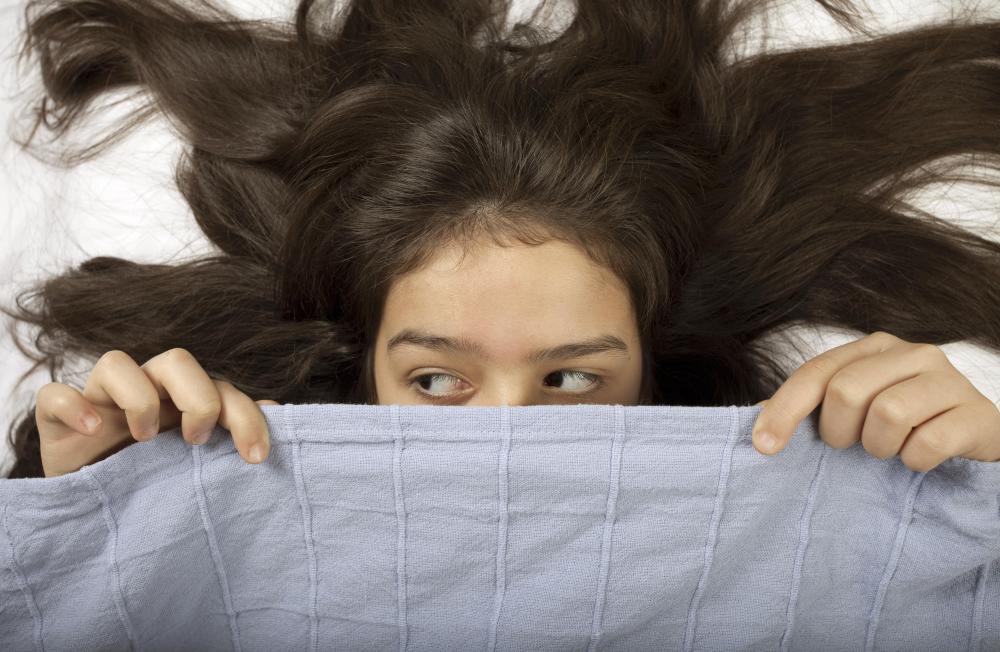At TheHealthBoard, we're committed to delivering accurate, trustworthy information. Our expert-authored content is rigorously fact-checked and sourced from credible authorities. Discover how we uphold the highest standards in providing you with reliable knowledge.
What is Manic Psychosis?
Manic psychosis is a condition where an individual experiences a loss of contact with reality combined with extreme mood disturbances. A person affected by mania often feels symptoms like excessive energy and excitement, irritability, restlessness, and an inability to focus. Psychosis causes discomforts such as delusional thoughts, hallucinations, and paranoia. With manic psychosis the sufferer is plagued by a combination of these two conditions. Manic psychosis can be manifested by a host of mental illnesses including bipolar disorder, schizophrenia, and schizo-affective disorder. The causes of mania and psychosis range from genetics to chemical and biological changes in the brain, hormonal imbalances, and substance abuse.
A person suffering from schizo-affective disorder generally encounters symptoms of manic psychosis. He or she might see, hear, or feel things that are not grounded in reality or do not exist. In addition to experiencing this psychosis, the individual will also cycle through periods of mania or depression. Mental health experts debate whether schizo-affective disorder is a distinct disease set apart from other illnesses and disorders, or whether it is schizophrenia, another psychiatric condition, accompanied by mood disturbances.

Like schizo-affective disorder, schizophrenia is an illness characterized by cycles of psychosis, which might or might not be accompanied by the mood disturbances of mania or depression. The symptoms of psychosis can be severe and disabling to those affected by the disease. There are many anti-psychotic medications available to treat the hallucinations and delusional thoughts and feelings that manifest from schizophrenic disease. Psychosocial treatment is also indicated in order to assist the individual living with a psychotic illness. Once psychotic episodes have been stabilized with the use of medication, psychosocial counseling can help the patient learn to function within their family and community, deal with challenges at work, home, and at school, and make informed decisions regarding his or her treatment plan.

Bipolar disorder is another condition that can include symptoms of manic psychosis. A person living with bipolar finds him or herself shifting between happiness and excitability, and excessive or exaggerated depression. Individuals with extreme and severe forms of the condition might also experience psychosis, and a sudden loss of touch with reality is often the first sign of bipolar disorder. The mood swings of bipolar can be mildly disruptive or drastic and unrelenting, depending on the severity of the disease. As with psychosis, there are medications available to help stabilize and prevent the manic and depressive episodes characteristic of bipolar disorder.

Manic psychosis can be caused by different things. The mental illnesses associated with mood disturbances and psychotic episodes can be evoked by genetics. A person who has one or more closely related individuals with bipolar or schizophrenia is more likely to also suffer from similar disorders. People suffering from mania and psychosis often display hormone irregularity, biological differences in their brains, or chemical imbalances. Psychotic episodes can also be artificially induced by the use and abuse of alcohol and recreational drugs.
AS FEATURED ON:
AS FEATURED ON:















Discussion Comments
I think bipolar disorder can be more closely tied to depression and anxiety disorder, where moods are unpredictable, but rational thought is usually still present.
Psychosis does imply a more severe loss of rational thinking and a danger to the patient and others.
Comparing manic psychosis to bipolar disorder is tricky.
Yes, bipolar disorder causes extreme mood swings and can result in a separation from reality, but instances or the extreme hallucinations and paranoia associated with manic psychosis are not common.
Post your comments